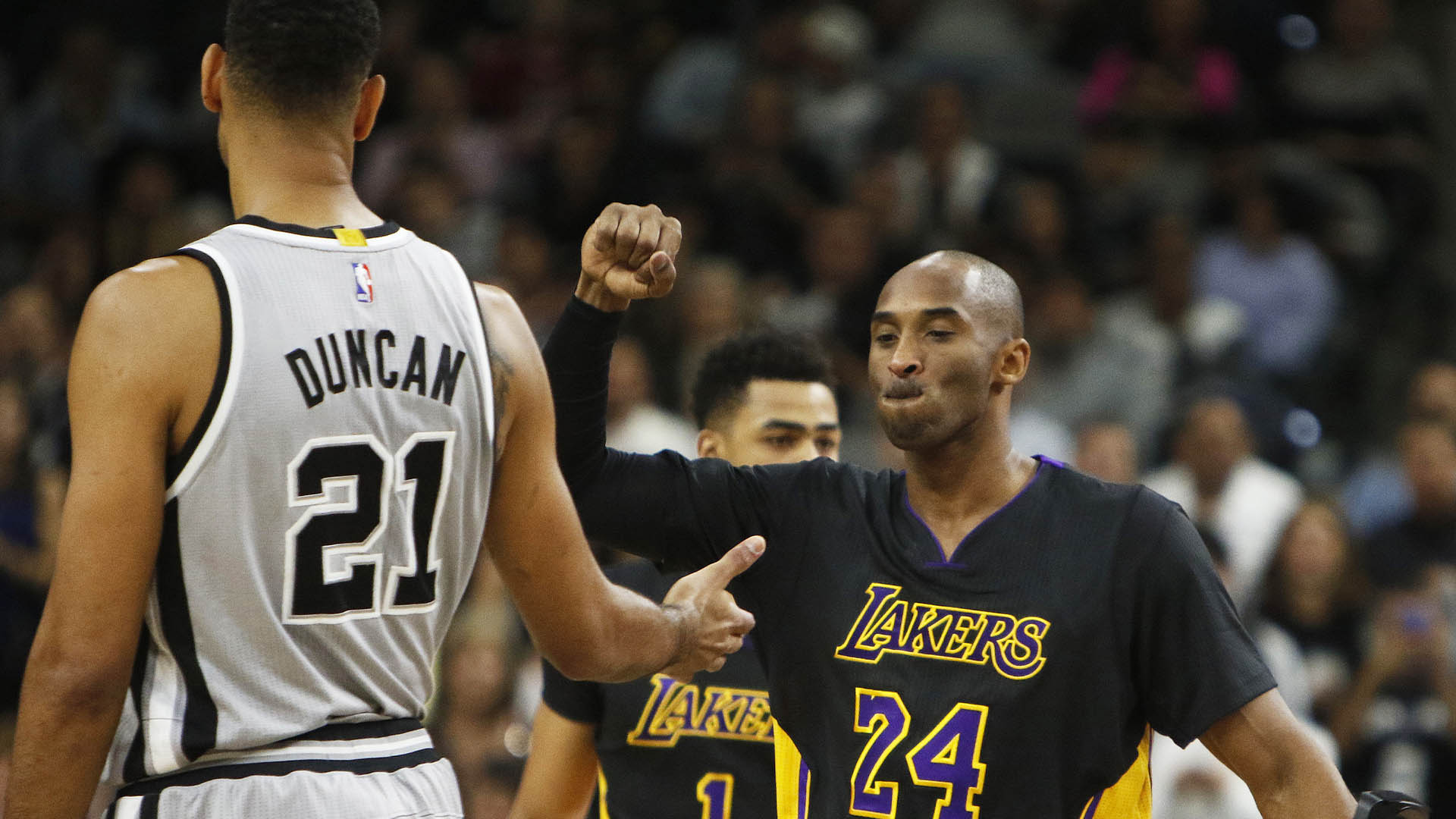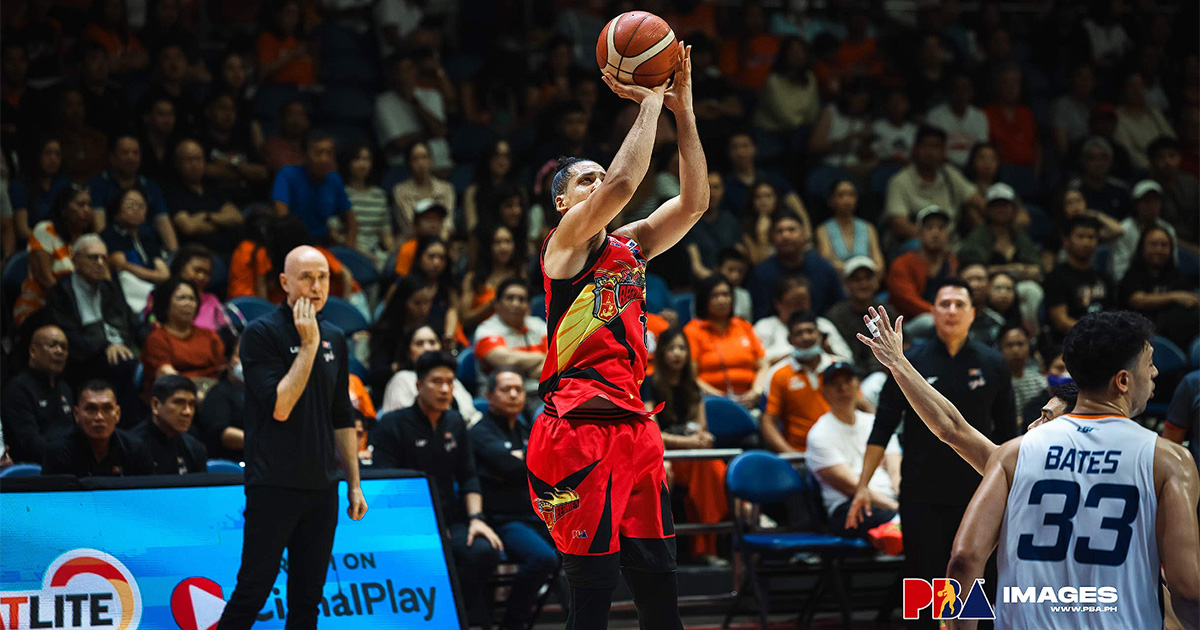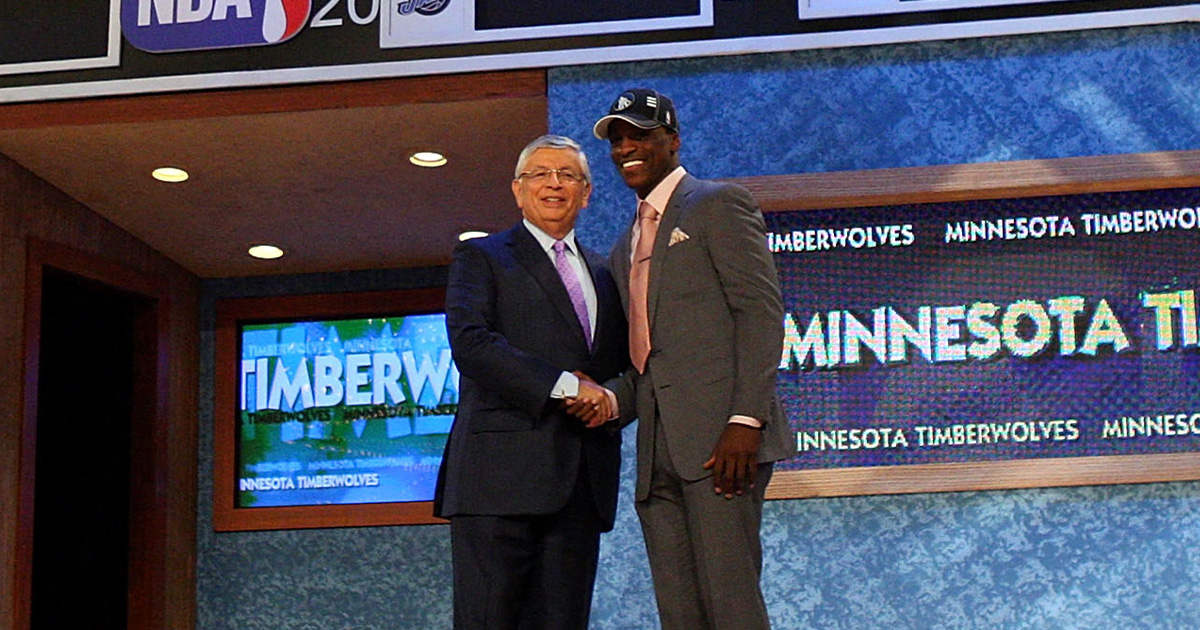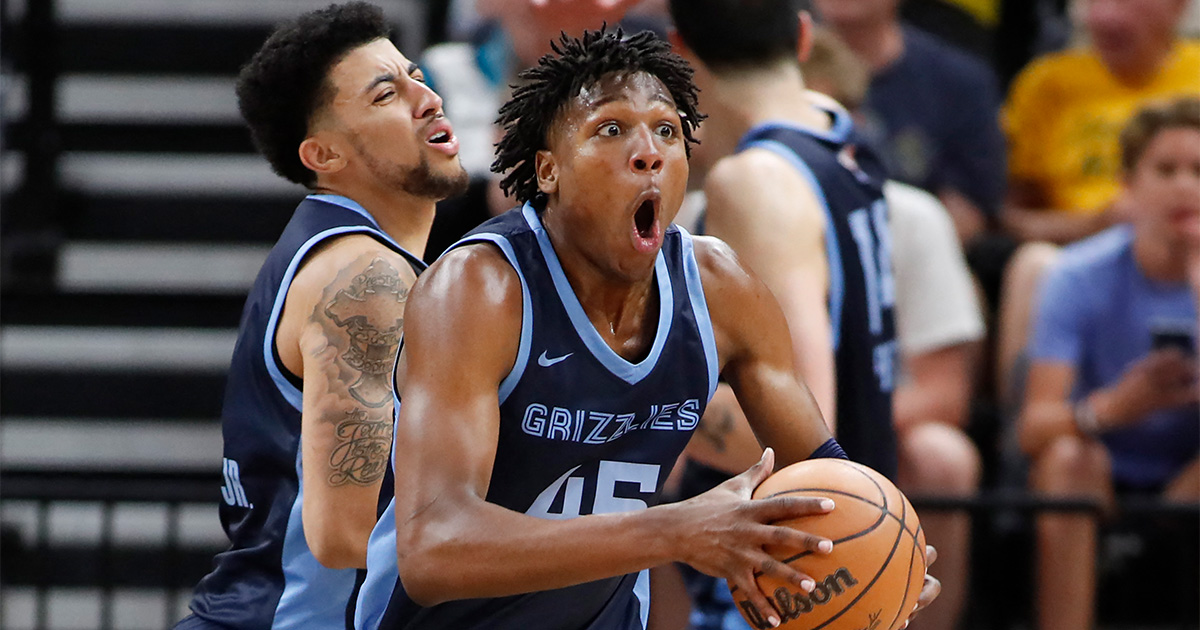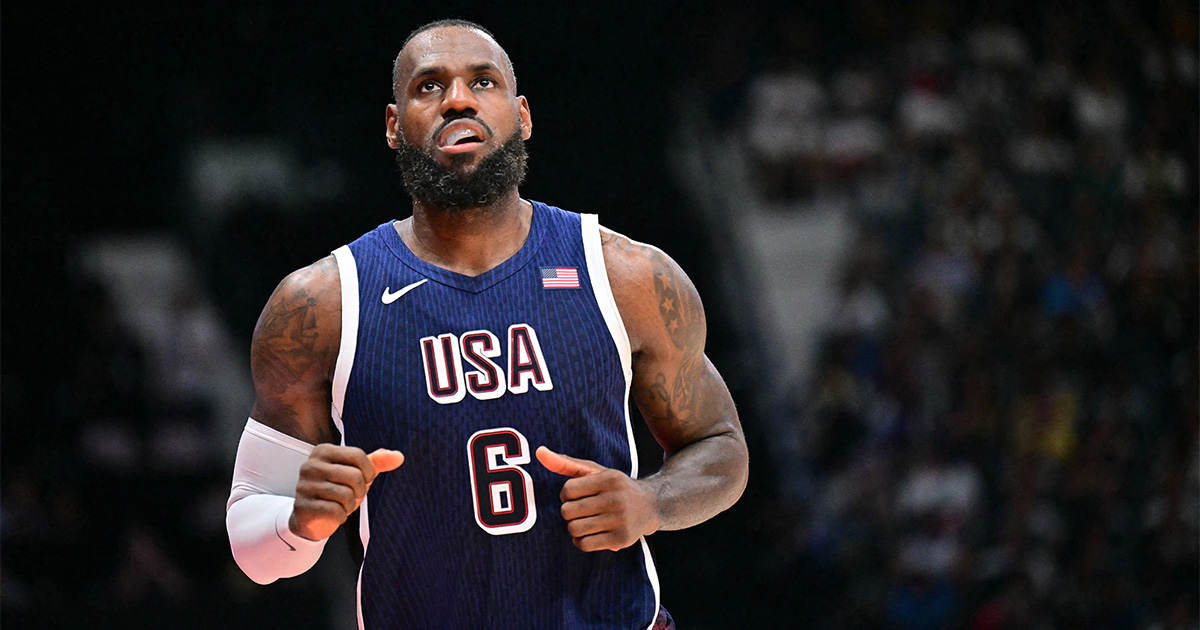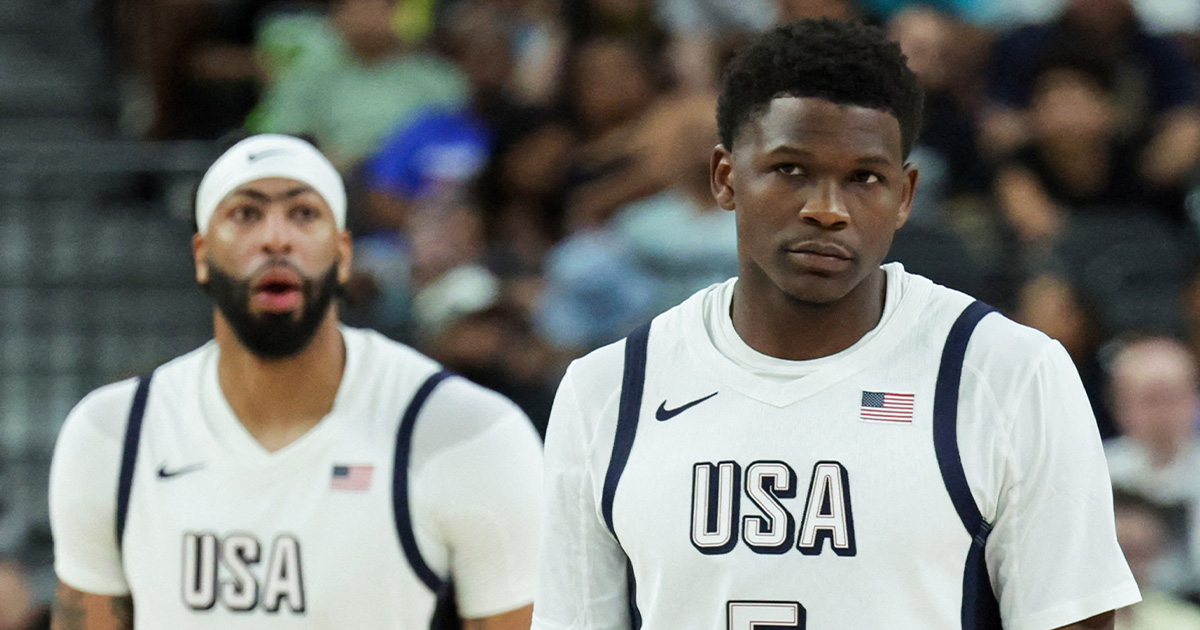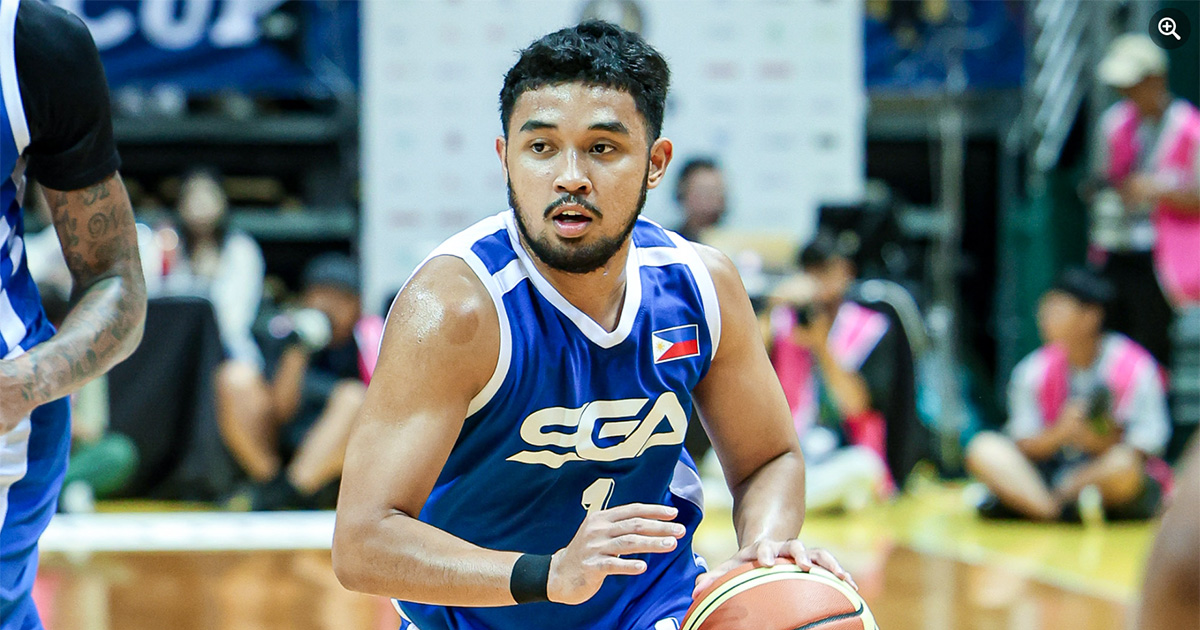The NBA will officially unveil its 75th anniversary team later this month. The list will inevitably spark endless debates about who got snubbed, and almost everyone will duly come up with their own unofficial lists. That’s cool but I thought it would be more challenging to instead try to predict the new players based on the profiles of those who made the 50th anniversary team.
According to Marc Stein, there was no mandate from the league to keep the 50 Greatest Players from 1996, which means some names will be dropped. Now, I’m not a fan of kicking out any of the old guys; I think it’s a bit disrespectful to those who will be displaced and their families, considering that many are already septua- and octogenarians while others have passed on, as it sort of devalues their life achievements. My take is to just keep the list growing; add 25 now, add another 25 in 2046, and so on. As you will see later as we go through the list, the cases for the borderline guys aren’t airtight anyway. But it is what it is, so what I’ll do is name more than 25 players who I forecast to make the 75th anniversary team. I will, however, refrain from picking out which guys from the Top 50 team should be supplanted (except for one, by necessity). Fair enough?
The 1996 50th anniversary team featured 11 active players, 8 of whom had been in the league for at least a decade, with Scottie Pippen (9 seasons), David Robinson (7 seasons), and Shaquille O’Neal (4 seasons) being the youngins. What does this mean? Longevity matters for the most part but it’s not decisive. 13-year vet, 9-time All-Star and 7-time All-NBAer Dominique Wilkins didn’t make the cut, which suggests that championships (Pippen had 4 then) and MVP-level peaks (Robinson was MVP in 1995 and had finished in the top three 4 other times during his first 7 years) matter more once you reach a certain number of All-Star seasons.
Shaq was a controversial selection at that time since he was apparently voted on the basis of potential. He was a 4-time All-Star but had neither won a title nor an MVP at that point. In fact, he had not even made an All-NBA First Team, though to be fair, the center was the deepest position then. He led Orlando to the Finals in 1995 but was summarily swept by Hakeem Olajuwon’s Rockets. It worked out fine in the end, but I doubt if there will be as much risk-taking by the Top 75 committee partly because we’ve seen how much injuries can alter a player’s career trajectory.
On the whole, the balance appears to be tilted in favor of quality over quantity, as evidenced by Bill Walton’s selection despite just 2 All-Stars and 2 All-NBA selections. His 2-year run with the Blazers in 1977 and 1978 was pure basketball nirvana that saw the Blazers go 70-15 in an 11-month stretch, winning their first (and only) NBA title with Walton taking home the 1977 Finals MVP and 1978 MVP honors, before the foot injury that forever altered his career. Just to put that run into perspective, imagine the Warriors capping 2016 with a title and Steph Curry playing like an MVP in the Finals. That was how Walton and the Blazers were.

So as a rule, quantity matters, but peaks and titles can swing things. Individual statistical crowns (John Stockton’s 9 assists titles) and Finals appearances (Shaq, Patrick Ewing) also carry weight, albeit to a lesser degree (3x scoring champ Neil Johnston, 4x leader Kevin Porter, and the best player on the 1976 runner-up Paul Westphal didn’t make it). We’ll uncover other rules as we move along, but we’ll start with these. Players are grouped into 4 tiers, depending on my confidence level:
- Tier-1, The “No-Brainers”. Anybody who takes issue with their inclusion is probably not a basketball fan. Confidence level: 100%
- Tier-2, The “Over/Under Guys”. Players who are also locks but for some reason stir up strong reactions among fans who either overrate them and feel they belong to tier-1 or underrate them and bump them down a notch. Confidence level: 100%
- Tier-3, The “Dwayne Johnsons”. Players with rock solid cases but there’s a gap or two in their resumes. Confidence level: 85%
- Tier-4, The “Borderliners”. Guys whose levels of accomplishments are a cut below the first 3 groups and whose advantages over other Hall of Fame-level players may not be clear-cut. Confidence level: 60-70%
Players are arranged alphabetically within tiers, so the order doesn’t really matter. Again, the list is meant to be predictive and doesn’t reflect my own rankings. Tony Parker is in, Tracy McGrady isn’t; but I have T-Mac ahead of Parker in my all-time rankings.
Part 1 covers the first 2 tiers.
NO-BRAINERS
- 1. Giannis Antetokounmpo
- 2. Kobe Bryant
- 3. Steph Curry
- 4. Tim Duncan
- 5. Kevin Durant
- 6. Kevin Garnett
- 7. LeBron James
- 8. Kawhi Leonard
- 9. Dirk Nowitzki
- 10. Dwyane Wade
Multiple MVP-caliber seasons, best players on championship teams. No need to waste our neurons. These guys should be a lock.
OVER/UNDER GUYS
11. Anthony Davis
CV: Top 3 2018 MVP; 4x All-NBA First Team; 4x All-Defense (2x First Team); 8x All-Star; 3x blocks champ; best player on a championship team* (2020); Career averages: 23.9 PPG, 10.2 RPG, 2.3 APG, 27.1 PER
I would have placed AD on tier-1 but I figured he’d be the only guy there who would’ve needed a write-up, so he wasn’t a no-brainer after all. If the NBA had an equivalent of the NHL’s Conn Smythe Trophy, then AD should have won it in 2020 as the best player for the entire postseason. He is third all-time in PER, behind Michael Jordan and LeBron. But he only made the playoffs twice in New Orleans whereas the tier-1 guys above practically guaranteed their franchises near-automatic playoff berths.
12. James Harden
CV: 2018 MVP, top 3 in 4 other seasons; 7x All-NBA (6x First Team); 9x All-Star; 3x scoring champ; 1x assists champ; Career averages: 25.1 PPG, 5.5 RPG, 6.5 APG, 24.8 PER
A perennial MVP candidate (see David Robinson rule) who is only one of three players to average over 36 points in a season. The other two, MJ and Wilt Chamberlain, are in the Top 50.
13. Allen Iverson
CV: 2001 MVP; 7x All-NBA (3x First Team); 11x All-Star; 4x scoring champ; 3x steals champ; 1997 ROY; HOF; best player on a Finals team (2001); Career averages: 26.7 PPG, 3.7 RPG, 6.2 APG, 20.9 PER
AI is one of the reasons why I decided to have two separate tiers for the locks. He singlehandedly dragged a mediocre Sixers team to the 2001 Finals (and stepped over Ty Lue). But it was also painful to watch him in the second-half of his career because he didn’t want to adapt his game. That’s why he isn’t a tier-1 guy.

14. Jason Kidd
CV: 2002 MVP runner-up; 6x All-NBA (5x First Team); 9x All-Defense (4x First Team); 10x All-Star; 5x assists champ; 1995 ROY; HOF; best player on two runners-up (2002, 2003); starter on a championship team (2011); Career averages: 12.6 PPG, 6.3 RPG, 8.7 APG, 17.9 PER
Kidd is second all-time in assists and those two runs to the Finals with the Nets seal the deal.
15. Steve Nash
CV: 2005 & 2006 MVP, 2007 runner-up; 7x All-NBA (3x First Team); 8x All-Star; 5x assists champ; HOF; Career averages: 14.3 PPG. 3.0 RPG, 8.5 APG, 20.0 PER
While Nash never made the Finals, he was arguably more accomplished individually (2 MVPs) than John Stockton was in 1996 (when Jazz hadn’t made the Finals yet).
16. Chris Paul
CV: 2008 MVP runner-up; 10x All-NBA (4x First Team); 9x All-Defense (7x First Team); 11x All-Star; 4x assists champ; 6x steals champ; 2006 ROY; best player on a runner-up (2021); Career averages: 18.3 PPG, 4.5 RPG, 9.4 APG, 24.9 PER
The other reason for having this tier. If AI is the “over” guy, CP3 is the “under.” All players with at least 10 All-NBA selections are either already in the Top 50 or are locks for the Top 75. Yet if you listen to some fans’ chatter about CP3, you’d think he’s a Borderliner. He’s not.
17. Russell Westbrook
CV: 2017 MVP; 9x All-NBA (2x First Team); 9x All-Star; 2x scoring champ; 3x assists champ; 4x season triple-double average; second-best player on a runner-up (2012); Career averages: 23.2 PPG, 7.4 RPG, 8.5 APG, 23.2 PER
The only other guy to average a triple-double is in the Top 50 and I think it will be tough for voters to ignore that Russ is the only one to do it 4 times. We’re entitled to our own opinions about Russ’s stat-chasing ways, but it doesn’t make his accomplishments any less unreal. Also, there are only 7 players who have won scoring and assists title: Oscar Robertson, Nate Archibald, Wilt Chamberlain, and Jerry West are all in the Top 50; while LeBron and Harden are cinches be in the Top 75.
Watch out for Part 2 this Saturday, October 9.

